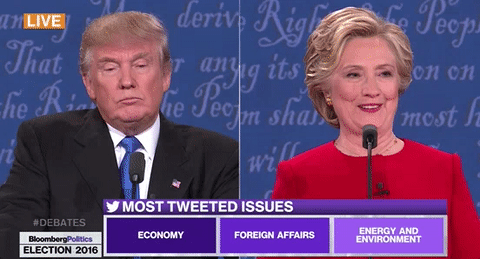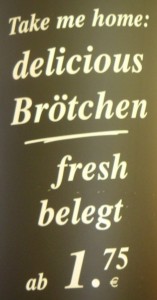It’s likely that the debate tonight will have little to do with substance, but rather with how the two candidates are perceived by viewers, which may not be determined to any great extent by the content of their answers or the explanations of policy differences. Rather, it is likely to come down to non-verbal communication, namely body language, gestures, and paralanguage, i.e., the tone of voice and speech characteristics. In a recent piece in the Atlantic, James Fallows discusses this aspect of the encounter. In reference to Donald Trump’s body language, he quotes noted anthropologist, Jane Goodall, that “the performances of Donald Trump remind me of male chimpanzees and their dominance rituals”. Indeed, his imposing physical stature on the stage at the Republican primary debates did seem to overpower the other candidates. The exception was Carly Fiorina, who was alone in standing up to him in the early debates. This time around, he will be facing no men but a woman who is unlikely to be cowed by the kind of chest-beating and belittlement he bestowed on his male competitors. As Fallows comments, “The potential first woman president of the United States, who is often lectured about being too ‘strident’ or ‘shrill,’ is up against a caricature of the alpha male, for whom stridency is one more mark of strength.”
Fallows points out, correctly, I believe, that one of the keys to his success so far has been the simplicity of his messaging and the language used. After the first debate, the transcript of Trump’s remarks was run through the Flesch-Kinkaid analyzer of reading difficulty, which indicated they matched a fourth-grade reading level. In politics (in the US), that’s a good thing. If it’s spoken language, the simpler, the better, making it more likely that listeners will both understand and retain what is said. According to the article, and experts on body language Fallows consulted, Trump’s facial expressions tend to have a similar narrow range. Jack Brown of BodyLanguageSuccess.com, commented that Trump’s range of expressions was considerably less that that of most people, with an interesting corollary:
The reason most people betray themselves through body language—we’re generally poor liars; others can tell when we’re faking a smile—is that our face, hands, and torso do more things involuntarily than most of us are aware of or can control… The payoff in this understanding of Trump’s body language, according to Brown, is that it explains why he can so often say, with full conviction, things that just aren’t true.
Fallows points out that in the first US presidential debate in 1960, between Richard Nixon and John F. Kennedy, those who heard the debate on radio thought it was a draw, but those who watched it on TV gave the win to the elegant, relaxed Kennedy over the sweating, shifty-eyed Nixon. Today, with high-definition TV, we will be able to spot the possible beads of sweat before even a candidate notices. Fallows says that, “the most accurate way to predict reaction to a debate is to watch it with the sound turned off.” If the battle of words becomes too much to bear, I might just try out his advice tonight.
Update: 9/28/2016
Yes, the non-verbal side of the debate was fascinating, especially in the last hour, in which Trump get increasingly feisty and defensive and Clinton began to smile more and more. There was one segment that proved particularly memorable, after Trump had engaged in one of his rambling responses, ending with, “I have much better judgement than she has. There’s no question about that. I also have a much better temperament than she does.” Clinton’s response: “Whoo. Ok.” and a broad smile and several shakes of her shoulders:
The shoulder shimmy seemed a perfect indicator of how the debate went – Clinton delighted in Trump’s difficulty in presenting himself as “presidential”, namely thoughtful, well-spoken, and serious.




